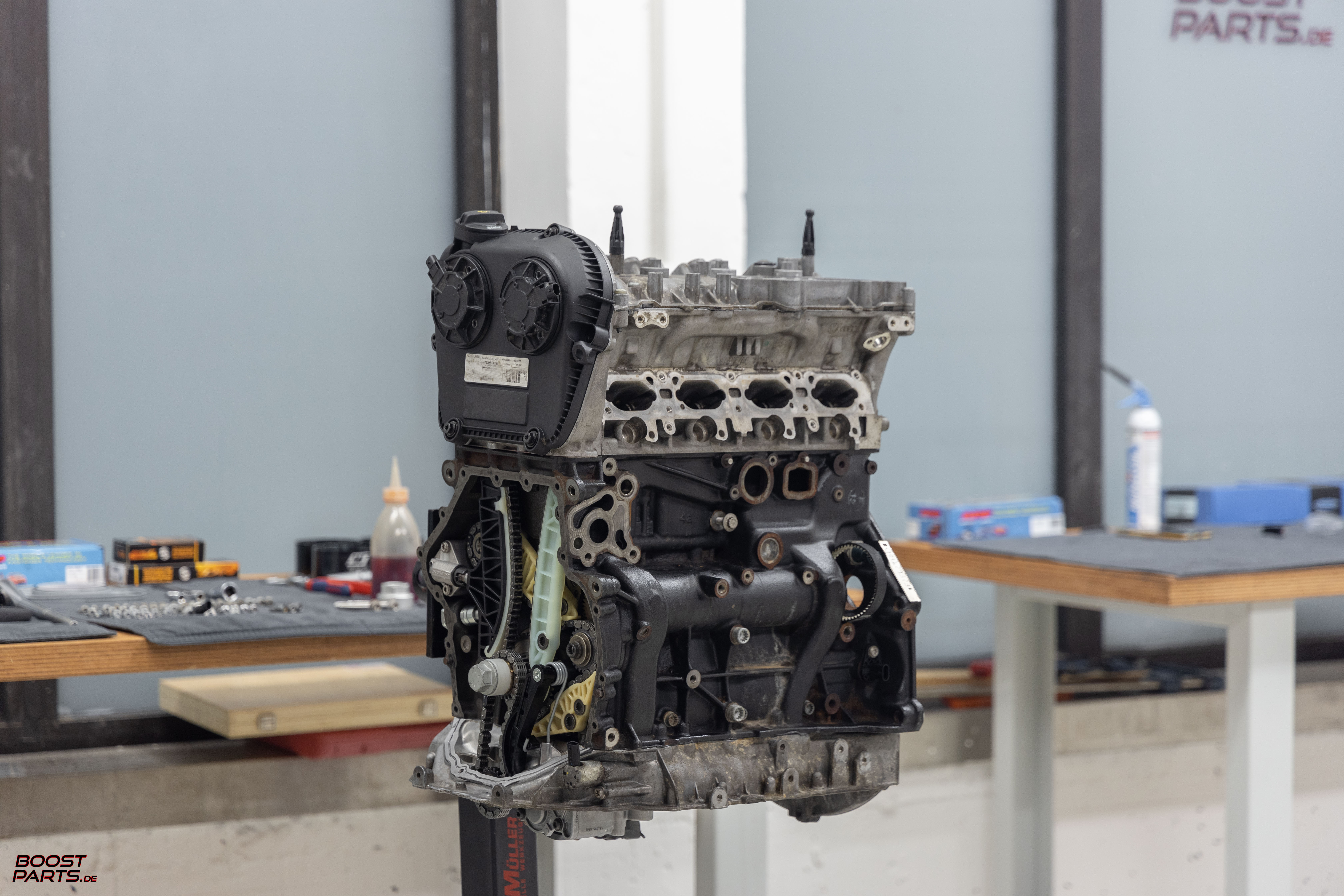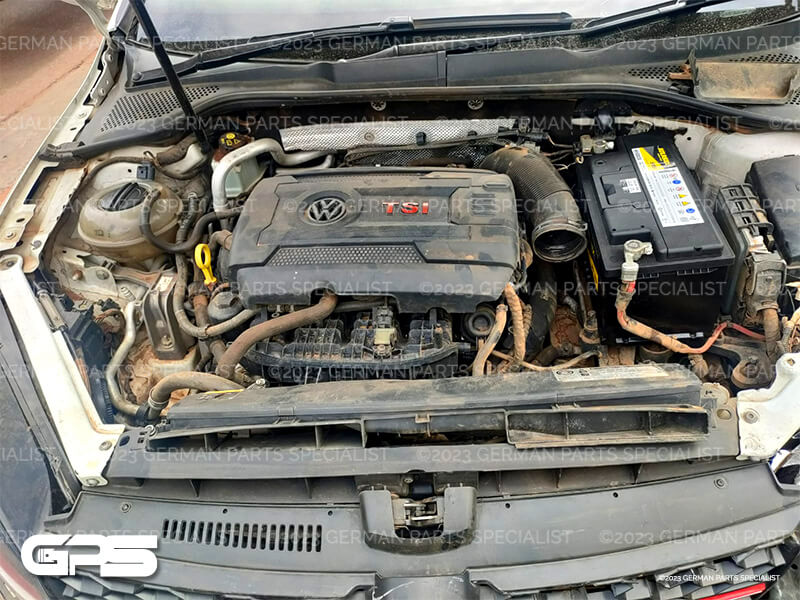The Pros and Cons of the Golf 7 GTI Engine: Is It the Right Choice for You?
Your Overview to the Golf 7 GTI Engine: Reliability and Upgrades
The Golf 7 GTI, furnished with its 2.0-liter turbocharged inline-four engine, stands for an equilibrium of efficiency and reliability that appeals to lovers and day-to-day vehicle drivers alike. Understanding the elements that add to its stability, alongside potential issues and their services, is vital for making the most of the driving experience. Exploring various performance upgrades can significantly enhance both power and efficiency. However, the question continues to be: what specific upgrades can change your GTI right into an absolutely exceptional vehicle while ensuring its long life?
Summary of the Golf 7 GTI Engine
The heart of the Golf 7 GTI is its 2.0-liter TSI engine, a turbocharged four-cylinder that supplies an excellent blend of power and performance. This engine creates a durable 220 horse power and 258 lb-ft of torque, allowing the lorry to speed up from 0 to 60 mph in simply 5.6 seconds, showcasing its flashy character. The turbocharged layout not only improves efficiency yet likewise optimizes gas effectiveness, making it a useful selection for everyday driving.
Including sophisticated technology, the engine includes straight fuel shot, which improves burning efficiency and lowers emissions. In addition, the Golf 7 GTI is geared up with either a six-speed guidebook or a six-speed DSG dual-clutch automatic transmission, giving chauffeurs with the adaptability to choose their liked driving style. The car's front-wheel-drive format, combined with a well-tuned suspension, makes sure agile handling and a responsive driving experience.
Engine Integrity Factors
Dependability is a crucial element of any kind of performance-oriented vehicle, and the Golf 7 GTI's engine is no exception. A number of variables contribute to the general dependability of this very regarded powerplant, which is necessary for both day-to-day driving and perky performance.
To Start With, the Golf 7 GTI is outfitted with a durable 2.0-liter turbocharged inline-four engine, recognized for its reliable layout and strong design. This engine includes a built steel crankshaft and light weight aluminum engine block, which provide superior strength and resilience while decreasing weight.
Secondly, regular maintenance plays a vital duty in boosting engine integrity. Sticking to the maker's advisable service intervals, utilizing top quality lubricants, and changing crucial parts such as stimulate plugs and filters can considerably extend engine life.
Furthermore, the top quality of gas utilized can also influence integrity. Premium fuel is advised to make sure ideal performance and decrease the danger of knocking or detonation.
Last but not least, the automobile's electronic management system continually keeps an eye on engine parameters, enabling real-time modifications to optimize efficiency and effectiveness while safeguarding versus prospective concerns. Collectively, these factors emphasize the Golf 7 GTI engine's credibility for reliability among fanatics and daily vehicle drivers alike.
Typical Concerns and Solutions
The Golf 7 GTI, while celebrated for its efficiency, is not without its difficulties. Amongst the most frequently reported concerns are engine oil consumption and turbocharger failings, which can considerably influence car integrity. Understanding these typical problems and their options is essential for preserving optimum engine performance.

Engine Oil Usage
While many enthusiasts appreciate the efficiency of the Golf 7 GTI, engine oil consumption can arise as a significant concern. Proprietors may observe that their vehicles call for more regular oil top-ups than anticipated, commonly credited to different factors intrinsic in the engine's design and operation.
One usual issue is the engine's direct gas injection system, which can cause increased oil usage as a result of the combustion process. In addition, the use of high-performance driving practices can aggravate oil burn-off, particularly under aggressive throttle problems. Drivers may likewise experience oil leakages from seals and gaskets, which can add to minimized oil degrees.
To address oil usage, routine upkeep is crucial. Routine oil modifications making use of high-quality synthetic oil can assist preserve optimum engine efficiency and longevity. Keeping track of oil levels and carrying out prompt checks can stop possible concerns prior to they escalate. If excessive consumption continues, it may be a good idea to seek advice from a specialist service technician to assess the engine for potential internal problems, such as worn piston rings or valve seals. Adopting these practices can considerably reduce issues concerning oil usage in the Golf 7 GTI, guaranteeing a much more reputable and satisfying driving experience.
Turbocharger Failings
Turbocharger failures can considerably influence the efficiency of the Golf 7 GTI, resulting in diminished power and performance. Typical issues related to the turbocharger consist of oil leaks, wastegate failing, and excessive shaft play. Oil leakages commonly stem from used seals or damaged gaskets, which can lead to oil contamination and succeeding engine damage. Consistently checking these components can aid identify and minimize such problems early.
One more widespread trouble is wastegate failure, which can lead to overboost or underboost problems. If left unattended, this not just affects the car's performance however can additionally lead to significant engine damages. Upgrading to a more durable wastegate can boost reliability and performance.
Extreme shaft play suggests wear in the turbocharger's bearings, which can cause a full turbo failing. Keeping an eye on increase pressure and paying attention for unusual noises can assist detect this issue early.
To stop turbocharger failings, regular maintenance, including oil adjustments and air filter substitutes, is essential. Furthermore, buying high-grade aftermarket components may offer enhanced dependability and efficiency, inevitably boosting the driving experience of the Golf 7 GTI.
Efficiency Upgrades to Consider
What performance upgrades can truly elevate the driving experience of a Golf 7 GTI? To unleash the full potential of this renowned hot hatch, a number of targeted adjustments can improve power, managing, and general driving pleasure.
One of the most efficient upgrades is a high-performance turbocharger. Replacing the stock unit with an aftermarket option can significantly increase horse power and torque, supplying an extra electrifying velocity experience. Matching this upgrade with a performance intercooler helps maintain optimum here are the findings temperature levels, making sure constant power shipment.
Next, consider updating the exhaust system. A much less restrictive exhaust not only boosts engine effectiveness however also produces an extra aggressive sound that amplifies the auto's flashy character. Pairing this with a remapped ECU will certainly enhance fuel distribution and ignition timing, additional increasing performance.
Suspension upgrades, such as flexible coilovers, can improve handling by decreasing the car's center of mass and lowering body roll. Furthermore, a set of high-performance tires will certainly enhance grasp, permitting sharper cornering and boosted general stability.
With each other, these upgrades can transform the Golf 7 GTI right into a more awesome and dynamic driving machine, making every trip a memorable experience. golf 7 gti engine.
Advised Maintenance Practices
Keeping the Golf 7 GTI engine needs focus to essential techniques that guarantee optimum performance and durability. Normal oil modifications are crucial for engine wellness, while timely timing belt substitute is crucial to stop potential failures. Applying these maintenance methods will certainly help keep your lorry running smoothly and effectively.
Normal Oil Changes
Routine oil adjustments are essential for the ideal efficiency and long life of the Golf 7 GTI's engine. Maintaining a consistent oil change timetable ensures that the engine operates smoothly and successfully. The advised period for oil changes is usually every 5,000 to 10,000 kilometers, relying on driving problems and the kind of oil used.
Using top notch artificial oil is crucial as it provides exceptional lubrication and thermal stability contrasted to traditional oils. This is particularly vital for the Golf 7 GTI, which includes a turbocharged engine that produces greater operating temperatures. Routine oil modifications aid to get rid of impurities and sludge build-up, which can endanger engine efficiency and bring about early wear.
In addition, fresh oil boosts gas performance and minimizes unsafe exhausts, adding to a cleaner setting. Throughout the oil modification process, it is also advisable to replace the oil filter to make certain optimum purification and stop any type of debris from entering the engine. Sticking to these techniques not just helps maintain the engine's honesty yet likewise preserves the worth of the lorry, making routine oil changes a vital facet of accountable GTI ownership.
Timing Belt Replacement
The timing belt is an essential element of the Golf 7 GTI's engine, in charge of synchronizing the turning of the crankshaft and camshaft. This synchronization is vital for optimal engine efficiency and effectiveness. If the read this post here timing belt fails, it can bring about disastrous engine damage, making prompt replacement crucial.

When preparing a timing belt substitute, it is a good idea to also change the water pump and tensioner. These elements work in combination with the timing belt and typically experience comparable wear, making sure optimal efficiency and longevity. Making use of OEM parts is advised for their dependability and compatibility with the Golf 7 GTI's engine.
Professional setup is highly motivated, as improper setup can lead to serious engine breakdowns. Routine upkeep of the timing belt not only secures the integrity of the engine however also improves the general driving experience of the Golf 7 GTI. golf 7 gti engine. Prioritizing this job helps maintain car dependability and efficiency gradually
Aftermarket Components and Modifications
Numerous enthusiasts turn to aftermarket modifications and parts to boost the efficiency and visual appeals of the Golf 7 GTI. These upgrades can considerably boost the vehicle's responsiveness, dealing with, and total driving experience. Popular alterations include high-performance air consumptions, exhaust systems, and intercoolers, which can raise horse power and torque by maximizing air consumption and exhaust flow.
Suspension upgrades are additionally prevalent, with choices varying from lowering springs to completely flexible coilover kits that improve experience top quality and cornering capability. Upgraded brakes, including performance pads and blades, can give better stopping power, guaranteeing security and control throughout spirited driving.
Visual adjustments, such as aftermarket wheels, body packages, and personalized lighting, allow owners to personalize their vehicles while maintaining a stylish appearance. Engine adjusting, whether via ECU remapping or standalone engine monitoring systems, can unlock additional performance potential, making the GTI even much more electrifying to drive.
While aftermarket modifications can yield significant advantages, it's vital to choose trusted brands and consider the potential effect on service warranty and integrity. Appropriate setup and tuning are crucial to ensure the long life of the vehicle while enjoying the improvements.
Enhancing Gas Effectiveness
Improving fuel performance in the Golf 7 GTI can result in considerable cost financial savings and a minimized environmental impact. Attaining much better fuel economic situation requires a mix of driving routines, maintenance practices, and calculated adjustments.
One effective technique is adopting a smooth driving design, preventing fast acceleration and hefty braking, which can significantly lower fuel intake. Preserving optimal tire stress is also critical; under-inflated tires can boost rolling resistance, causing decreased performance. Regular maintenance, including engine tuning and air filter substitutes, guarantees that the engine runs at peak performance, additionally enhancing gas economy.
For those seeking upgrades, take into consideration a performance song that concentrates on effectiveness instead than sheer power. Eco-mode settings, if readily available, can adjust throttle action and change points to make best use of fuel cost savings. In addition, lightweight aftermarket wheels can minimize weight and boost efficiency without jeopardizing efficiency.
Last but not least, employing aerodynamic improvements, such as a front splitter or back looter, can decrease drag at higher rates, adding to better fuel economic climate. By carrying out these approaches and modifications, Golf 7 GTI proprietors can appreciate enhanced fuel effectiveness while preserving the automobile's perky driving features.
Conclusion
To conclude, the Golf 7 GTI engine exemplifies a blend of performance and dependability, driven by a well-engineered 2.0-liter turbocharged inline-four. Understanding of typical problems, such as oil usage and turbocharger failings, along with adherence to advised upkeep techniques, is crucial for long life. Different efficiency upgrades and aftermarket adjustments can enhance driving experience while maintaining dependability. Ultimately, mindful interest to both maintenance and enhancement strategies ensures the Golf 7 GTI continues to be an click here to read affordable option in the automobile market.
The Golf 7 GTI, outfitted with its 2.0-liter turbocharged inline-four engine, stands for a balance of efficiency and dependability that appeals to fanatics and day-to-day chauffeurs alike. Routine oil adjustments utilizing top quality synthetic oil can assist maintain optimum engine performance and longevity.Normal oil modifications are essential for the optimum performance and long life of the Golf 7 GTI's engine. Routine maintenance, including engine adjusting and air filter substitutes, ensures that the engine runs at peak performance, further enhancing gas economy.
